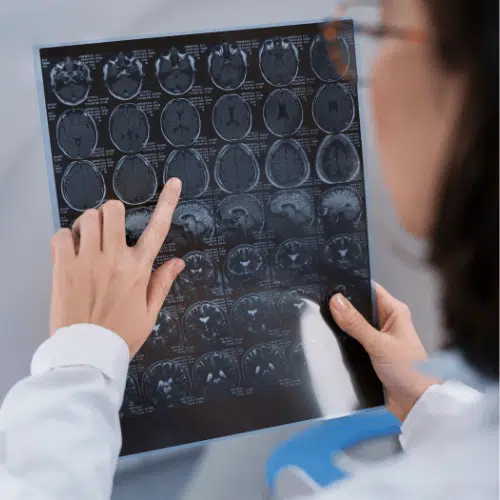The 8-Minute Rule for Axis Spine And Orthopedics
The 8-Minute Rule for Axis Spine And Orthopedics
Blog Article
The Only Guide to Axis Spine And Orthopedics
Table of ContentsGetting The Axis Spine And Orthopedics To WorkIndicators on Axis Spine And Orthopedics You Need To KnowThe Basic Principles Of Axis Spine And Orthopedics A Biased View of Axis Spine And Orthopedics
An orthopedic specialist is a doctor who specializes in treating issues of the bones, joints, and connective cells, and guaranteeing you preserve a healthy musculoskeletal system., we have very qualified orthopedic doctors that are capable of dealing with patients of all ages. I obtained entailed in research throughout my first year of medical institution, and I began making links with orthopedic doctors early on.
Talk about the post-operative treatment strategy with your doctor. Arrange for transport to and from the healthcare facility on the day of surgical procedure.
How Axis Spine And Orthopedics can Save You Time, Stress, and Money.

Your doctor will certainly offer lots of information concerning post-operative treatment, including how to stay tidy and keep the medical location clean. Complying with these pointers can prepare you literally and mentally for your orthopedic surgery. Remember to keep a favorable overview and trust your clinical team's know-how, contributing to a smoother recovery process.

Otherwise, you'll just get confused. Believe regarding the big picture. Nobody anticipates you to understand anything, so don't attempt to remember a number of random facts. Whether you're following your children, dealing with hiking tracks, or flaunting your ideal dancing relocations, maintaining your musculoskeletal system in excellent form is essential. Or else, joint discomfort can truly mess up your life.
The constant pain in your knee or the tightness in your shoulder can reduce you down and make also straightforward tasks challenging. Usual conditions dealt with by orthopedic doctors are: Fractures and Bone Trauma: Broken bones and various other injuries from mishaps or effects. Arthritis: Particularly osteo arthritis, which triggers joint pain and tightness. Benign Soft Cells Growths: Non-cancerous developments in muscular tissues or various other soft tissues. Bone Cancer: Tumors in the bones. Bursitis: Swelling of the little cavities of.
6 Simple Techniques For Axis Spine And Orthopedics
fluid that support the bones, ligaments, and muscle mass near your joints. Neck and Reduced Back Discomfort: Concerns affecting the spinal column. Orthopedic Injury: Severe injuries influencing bones, joints, or soft tissues. Sports Injuries: Problems like ligament splits, tendon injuries, and joint discomfort from sports tasks.
Orthopedic surgeons perform a selection of procedures to help people with musculoskeletal problems. Apart from these subspecialists, some orthopedic specialists are generalists. Training might include standard medical institution (a doctor of medicine degree, or MD)or osteopathic education (a doctor of osteopathy degree, or DO) - axis spine.
All About Axis Spine And Orthopedics
Next off, they finish an orthopedic residency. It's normally 5 years and provides hands-on understanding in a Find Out More clinical setup. Visits often consist of: Reviewing your symptoms, clinical background and way of living.
Therapy suggestions. Some problems need added imaging, like a CT check or MRI for even more extensive views of the uncomfortable location. Your orthopedist will certainly recommend treatments to reduce symptoms up until you obtain a diagnosis. Orthopedic surgeons focus on nonsurgical and surgical methods. For sure types of orthopedic trauma or congenital conditions, surgical treatment is usually the first line of treatment. For a lot of various other problems, orthopedists attempt nonsurgical treatments. It may take more than one kind of therapy to achieve long-term alleviation. Selecting the right is critical for effective surgical outcomes and improved person recuperation. With a vast array of options offered in the marketplace, it can be frustrating for both doctors and people to make an educated choice. The top 5 factors to consider when selecting an orthopedic implant are medical compatibility, cost-effectiveness, considerations for revision surgical treatment, patient-specific aspects, and the layout and innovation of the dental implant. They are available in different shapes, sizes, and products, each serving a certain function based on the client's demands. Understanding the basics of orthopedic implants is essential before diving right into the decision-making process. One of the leading factors to consider when selecting an orthopedic implant is its compatibility with the operation. Various implants are made for numerous surgical techniques and approaches. The orthopedic dental implant ought to be especially designed to fit the person's composition and guarantee stability during the healing procedure. Surgical compatibility includes factors such as dental implant size, shape, and material. The success of orthopedic procedures relies heavily on the correct choice and placement of implants that are suitable with the person's composition and case history. By prioritizing patient security and health, orthopedic surgeons can accomplish effective results and provide the highest quality of care to their people. Surgeons should very carefully think about the biomechanical residential or commercial properties of the dental implant and just how it will certainly integrate with the individual's bone framework. This will certainly add to better medical end results, minimized issues, and much shorter recuperation time. When picking implants for an individual, it is necessary to consider a variety of patient-specific factors that can affect the success and result of the procedure. These aspects incorporate the individual's age, bone high quality and quantity, oral health and wellness status, clinical background, lifestyle habits, and visual preferences. For older individuals with compromised bone thickness, shorter implants or grafting treatments might be advantageous to offer the necessary security and support. 3. Is the dimension of the orthopedic dental implant a critical consideration? Just how does it impact the operation and the individual's recuperation? Yes, the size of the implant is important as it needs to match the patient's framework for appropriate fit and functionality. 4. Can the client's age and lifestyle contribute in selecting the most ideal orthopedic dental implant? Definitely. How does the price of an orthopedic dental implant aspect into the decision-making procedure, and exist means to stabilize quality with cost? The cost of the dental implant is an essential consideration, yet it ought to not be the single determining element. Stabilizing quality with affordability entails weighing different dental implant alternatives 'lasting benefits and possible issues. Report this page